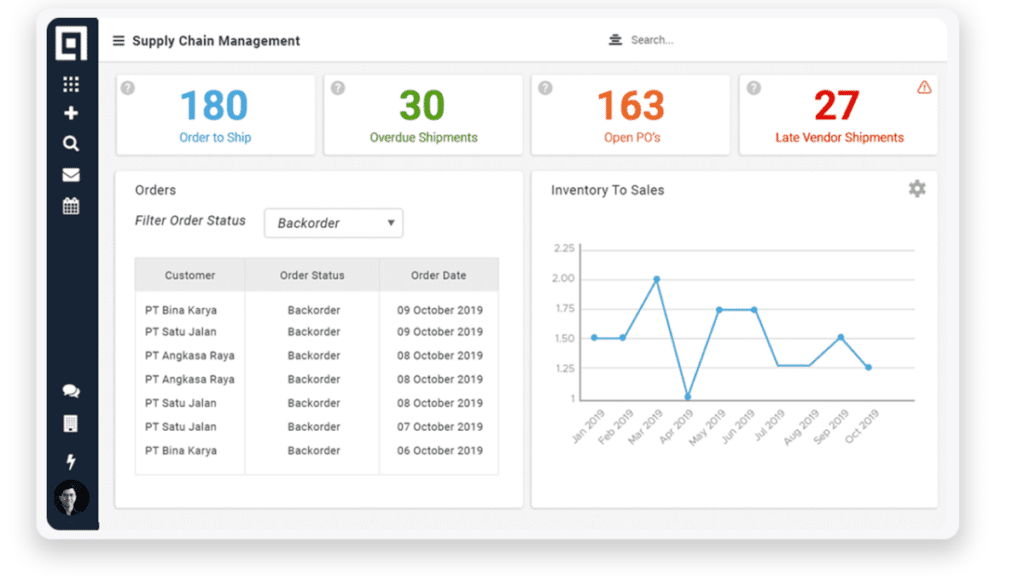In today’s highly competitive business landscape, optimizing your supply chain is crucial to stay ahead of the competition. Supplier management plays a pivotal role in achieving supply chain optimization by effectively managing your relationships with suppliers, evaluating their performance, and employing strategic techniques.
The success of your supply chain heavily relies on supplier management, encompassing key aspects such as supplier relationship management, supplier performance management, and supplier evaluation. By implementing strategic supplier management techniques, you can enhance collaboration, improve efficiency, and reduce costs.
In this article, we will explore the significance of supplier management in supply chain optimization and delve into key elements that contribute to its success. We will also discuss techniques for effective supplier evaluation, enhancing supplier collaboration, managing supplier risks, measuring and improving supplier performance, and the future of strategic supplier management.
By understanding and implementing these strategic supplier management techniques, you can optimize your supply chain, drive business efficiency, and gain a competitive edge in the Singaporean market.
Table of Content:
Table of Content
The Significance of Supplier Management in Supply Chain Optimization
Supplier management plays a vital role in optimizing your supply chain and driving business efficiency, improved performance, and cost reduction. By effectively managing your suppliers, you can enhance collaboration, evaluate performance, mitigate risks, and make informed decisions to ensure optimal supply chain operations.
Effective supplier management begins with the selection of reliable and capable suppliers. By carefully evaluating suppliers based on criteria such as quality, pricing, delivery reliability, and compliance with industry standards, you can make strategic sourcing decisions that positively impact your supply chain.
Once suppliers are selected, ongoing collaboration and communication are essential for maintaining strong relationships. Timely and open communication enables effective coordination and responsiveness, reducing lead times and enhancing overall supply chain efficiency.
Risk management is another critical aspect of supplier management. By assessing and proactively managing supplier-related risks, such as disruptions in the supply chain, you can minimize potential impacts on your operations and maintain business continuity.
Furthermore, supplier management allows for continuous improvement and optimization. By setting performance metrics, monitoring key performance indicators (KPIs), and providing feedback to suppliers, you can drive performance improvements and foster a culture of excellence within your supply chain.
With effective supplier management practices in place, you can optimize your supply chain, streamline operations, and achieve sustainable success in today’s competitive business landscape.
Key Elements of Supplier Management
Supplier management is a multifaceted process that encompasses several key elements critical to optimize supply chains. These elements include supplier evaluation, collaboration, risk management, and the use of performance metrics.
Supplier Evaluation
In supplier management, evaluating potential suppliers is a fundamental step to ensure that businesses work with reliable and capable partners. Supplier evaluation involves assessing the capabilities, competencies, and reliability of suppliers. It helps in identifying the right suppliers who can meet business requirements and contribute to overall supply chain optimization.
Supplier Collaboration
Collaboration plays a vital role in establishing strong relationships with suppliers. Effective communication and collaboration with suppliers enable seamless and efficient supply chain operations. Strong supplier collaborations foster transparency, trust, and mutual understanding, leading to improved operational efficiency and customer satisfaction.
Supplier Risk Management
Supplier risk management is an essential aspect of supplier management that aims to identify and mitigate potential risks associated with suppliers. It involves conducting risk assessments to understand potential vulnerabilities and developing contingency plans to address them. Proactive risk management helps businesses minimize disruptions, ensure business continuity, and safeguard the supply chain.
Performance Metrics
Performance metrics are instrumental in measuring and monitoring supplier performance. These metrics track performance indicators such as quality, delivery reliability, responsiveness, and cost-effectiveness. By utilizing performance metrics, businesses can objectively evaluate supplier performance and identify areas for improvement. Timely performance feedback facilitates constructive discussions and supports continuous supplier development.
Enhancing Supplier Collaboration for Optimal Supply Chain Performance
Building Strong Strategic Partnerships
When it comes to optimizing supply chain performance, supplier collaboration is key. By building strong and strategic partnerships with suppliers, businesses can unlock numerous benefits. Strategic partnerships enable open communication channels, fostering a collaborative environment for information sharing and joint planning. This level of collaboration ensures efficient inventory management and timely order fulfillment.
Establishing reliable and trust-based relationships with suppliers lays the foundation for improved overall supply chain coordination. Through strategic partnerships, businesses can share critical information, collaborate on demand planning, and implement joint initiatives to enhance the entire supply chain ecosystem.
Open Communication and Information Sharing
Achieving optimal supply chain performance requires seamless communication between businesses and their suppliers. Establishing open lines of communication and information sharing is vital to address challenges, resolve issues, and align on goals and objectives.
Regular and transparent communication creates a shared understanding, ensuring that both parties are on the same page when it comes to inventory levels, production schedules, and delivery requirements.
By actively engaging in communication and sharing real-time data, businesses can respond swiftly to changes in demand, supply, or market dynamics. Suppliers can proactively plan and adapt their operations to meet business requirements, resulting in enhanced supply chain performance.
Joint Planning and Collaboration
Joint planning serves as a catalyst for supplier collaboration and optimal supply chain performance. By involving suppliers in planning processes, businesses can harness their expertise and insights. Joint planning sessions can focus on demand forecasting, production schedules, and inventory management, allowing for better alignment and synchronization between business and supplier operations.
Collaborative planning helps businesses and suppliers identify opportunities for increased efficiency, cost reduction, and innovation. By pooling resources and information, both parties can identify potential bottlenecks and formulate strategies to overcome them. Joint planning fosters a spirit of shared responsibility, ensuring that all stakeholders in the supply chain are working towards a common goal of customer satisfaction.
Concluding Thoughts
Supplier collaboration through strategic partnerships, open communication, information sharing, and joint planning plays a crucial role in achieving optimal supply chain performance. By focusing on building strong relationships with suppliers and engaging them as strategic partners, businesses can drive efficiency, improve coordination, and deliver better customer experiences. Emphasizing supplier collaboration is a strategic approach for businesses looking to stay competitive in the ever-evolving global supply chain landscape.
Managing Supplier Risks in the Supply Chain
Effective supplier risk management is crucial for maintaining a resilient and efficient supply chain. By identifying and mitigating potential risks associated with suppliers, businesses can minimize disruptions and ensure continuous operations. This section explores the key strategies involved in managing supplier risks and safeguarding your supply chain.
Risk Assessment: Conducting thorough risk assessments is the first step in supplier risk management. Evaluate the potential risks associated with each supplier, including financial stability, quality control, and delivery reliability. By understanding these risks, you can develop targeted mitigation strategies.
Contingency Planning: Developing contingency plans is essential for minimizing the impact of supplier risks. Identify alternative suppliers and establish backup plans to ensure a smooth flow of materials and minimize disruptions in case of supplier failures or disruptions.
Diversification: One of the ways to mitigate supplier risks is through diversification. Relying on a single supplier increases vulnerability, so consider working with multiple suppliers for critical materials or components. This ensures a backup option in case one supplier encounters issues.
Monitoring: Proactive monitoring of supplier performance helps in early identification of potential risks. Implement a robust monitoring system to track supplier performance metrics, such as quality, delivery timeliness, and customer satisfaction. This enables timely intervention and minimizes the chance of supply chain disruptions.
By effectively managing supplier risks, businesses can optimize their supply chains, reduce the likelihood of disruptions, and ensure business continuity. The next section will delve into measuring and improving supplier performance to further enhance supply chain performance.
Measuring and Improving Supplier Performance
Optimizing supply chains relies on effectively measuring and improving supplier performance. By implementing robust supplier performance management strategies, businesses can enhance collaboration, drive efficiency, and maintain a competitive edge. This section will explore the importance of performance metrics, key performance indicators (KPIs), continuous improvement, and the feedback loop in ensuring supplier success.
The Role of Performance Metrics and KPIs
Performance metrics are essential in evaluating supplier performance. By defining specific metrics aligned with business goals, such as on-time delivery, product quality, and customer satisfaction, companies can measure supplier performance objectively.
These metrics act as benchmarks for tracking performance over time and identifying areas for improvement. Key performance indicators (KPIs) are quantifiable measures derived from performance metrics that provide insights into supplier performance and allow businesses to make data-driven decisions.
Continous Improvement and the Feedback Loop
Continuous improvement is pivotal in supplier performance management. It involves ongoing efforts to identify bottlenecks, inefficiencies, and areas of underperformance within the supply chain. Through continuous improvement initiatives, companies can collaborate with suppliers to streamline processes, optimize performance, and drive innovation.
To facilitate continuous improvement, organizations should establish a feedback loop with their suppliers. This involves providing clear and constructive feedback on supplier performance, highlighting strengths and areas for improvement. By fostering open communication and engaging in regular dialogue, businesses can build stronger relationships with their suppliers, paving the way for enhanced collaboration and mutual growth.
Effective supplier performance management, utilizing performance metrics, KPIs, continuous improvement, and the feedback loop, enables businesses to optimize supply chains and achieve operational excellence.
Supplier Development for Long-Term Success
In order to drive long-term success in your supply chain, it is crucial to focus on supplier development. By investing in the capabilities and capacities of your suppliers, you can ensure a strong and sustainable partnership that benefits both parties. Supplier development can be achieved through various strategies, including capacity building, training programs, and fostering innovation.
Capacity building initiatives aim to enhance the skills, knowledge, and resources of your suppliers. By providing them with the necessary tools and support, you empower them to meet your business requirements more effectively. Training programs play a vital role in improving supplier performance and ensuring compliance with industry standards.
Moreover, fostering innovation within your supplier network can drive continuous improvement and help you stay ahead of the competition. Encouraging suppliers to explore new ideas, technologies, and processes can lead to more efficient and effective supply chain operations.
Another key aspect of supplier development is cultivating long-term partnerships. Building strong relationships based on trust, open communication, and shared goals fosters collaboration and mutual growth. Long-term partnerships provide stability, reliability, and the potential for joint initiatives that can positively impact your supply chain.
Leveraging Technology for Supplier Management

In today’s fast-paced business environment, technology plays a crucial role in optimizing supplier management practices. By incorporating technology-driven solutions into your supplier management strategies, you can streamline processes, improve decision-making, and enhance overall supply chain efficiency.
One key aspect of leveraging technology in supplier management is the use of supply chain software. These software solutions offer robust functionality for supplier evaluation, collaboration, and risk management. They enable you to centralize supplier information, track performance metrics, and identify areas for improvement.
Automation is another essential technology tool for effective supplier management. With automated processes, you can eliminate manual tasks, reducing human error and saving time. Automated workflows streamline supplier onboarding, order processing, and invoice management, ensuring smooth operations and faster decision-making.
Data analytics is revolutionizing supplier management by providing actionable insights into supplier performance and trends. By leveraging advanced analytics tools, you can monitor key performance indicators (KPIs), identify risks and opportunities, and make data-driven decisions. Real-time visibility into supplier activities allows you to proactively address issues and optimize supply chain operations.
Leveraging technology empowers businesses to optimize their supplier management strategies and improve overall supply chain performance. It enables you to make informed decisions, enhance supplier collaboration, and drive continuous improvement. By embracing technology in supplier management, you can gain a competitive edge and stay ahead in today’s dynamic business landscape.
Optimize Supplier Management with HashMicro
Optimizing supplier management is crucial for businesses in Singapore to maintain a competitive edge in today’s dynamic market. By partnering with HashMicro, a leading supply chain software provider, businesses can revolutionize their supplier management processes.
HashMicro’s comprehensive software suite offers tools specifically designed to streamline supplier management, including efficient vendor onboarding, performance evaluation, and contract management. With real-time data and analytics, businesses can make informed decisions, strengthen supplier relationships, and reduce supply chain risks.
HashMicro’s solution ensures accurate record-keeping, facilitates timely payments, and promotes collaboration, resulting in improved operational efficiency and cost savings. By choosing HashMicro, businesses gain not just a powerful software solution but also a trusted partner committed to their success.
Try the free demo now and gain the optimal supply chain process with the software!
























































